2nd Festival of Innovation - 2016
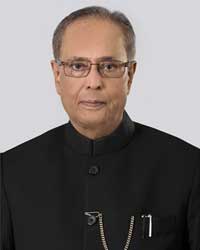
"A country like India may have reached a certain level of technological advancement. It may have promoted the development of a scientific bent of mind and temperament amongst its citizens, especially the young ones. However, unless young minds are sensitised to the need for finding creative solutions to top-ranging socio-economic problems of our country, the goal of inclusive development will remain elusive. If we are able to leverage ingenuity to address social needs, it will result in social innovations beneficial to the society."
- Hon'ble President of India Shri Pranab Mukherjee
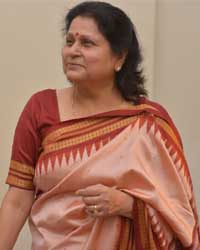
"We are a country of 1.28 billion minds. We are also a country of 122 languages, 1,600 dialects, several religions, yet we live in peaceful co-existence. This shows the streak of commonality of aspirations, which we must inculcate in our younger generation.Education, knowledge, spirit of entrepreneurship all need to be inculcated right from the beginning in the younger generation."
- Secretary to the President Smt Omita Paul
Rashtrapati Bhavan, New Delhi
March 12-19, 2016
The celebration of grassroots innovation at Rashtrapati Bhavan empowers creative communities in a manner that was never tried before in the history of the country. The second edition of week-long Festival of Innovation (FOIN) was inaugurated on March 12, 2016 by the Hon’ble President of India Shri Pranab Mukherjee in New Delhi. The event was hosted by the President at Rashtrapati Bhavan from March 12-19, 2016. The President’s Secretariat was assisted by the National Innovation Foundation (NIF), an autonomous institution under the Department of Science and Technology, government of India, and Society for Research and Initiatives for Sustainable Technologies and Institutions (SRISTI), part of the Honey Bee Network.
The Honey Bee Network, a social movement to uncover the hidden innovative talent, started 25 years ago and has made a small contribution towards recognition, respect and reward for the unsung heroes of our society. This will help in making India a creative, compassionate and collaborative society.
The event focused the attention of the nation towards the untapped potential of knowledge-rich, economically poor people.India is perhaps the only country where the head of the state hosts such a festival at his house.
An exhibition of grassroots innovations kicked off FOIN 2016. The President was accompanied by Dr Harsh Vardhan, Union minister for science & technology and earth sciences; Dr Najma A Heptulla, Union minister for minority affairs; Dr R A Mashelkar, chairperson, National Innovation Foundation (NIF); Prof Ashutosh Sharma, secretary, Department of Science & Technology (DST), NIF’s Chairperson Dr R A Mashelkar and Prof Anil K Gupta, executive vice-chairperson, NIF.
A total of 65 grassroots innovations were exhibited as part of the event. The event had global roundtable conferences, spread over a period of six days, and a meeting of national innovation clubs to deliberate on the progress and future plans of innovation projects in India.
Nobel Laureate Shri KailashSatyarthi and other distinguished thinkers, policymakers, academicians and entrepreneurs, national and international, attended the conference.
The first edition of FOIN was held from March 7-13, 2015.
Events as part of FOIN 2016
- March 12: Inauguration of the innovation exhibition by the Hon'ble President Shri Pranab Mukherjee and introduction with innovation scholars and writers in-residence
- March 12 (afternoon): Global Roundtables on (1) Inclusive Innovations; (2) Leveraging Science, Technology and Innovation: Developing an Inclusive Ecosystem; and (3) Education for inclusive innovation development
- March 12 (evening): Rapporteurs' Summarisation on Global Roundtable on Inclusive Innovation to the Hon'ble President
- March 13: Gandhian Young Technological Innovation (GYTI) Award Ceremony followed by Global Roundtable on Inclusive Innovation, Incubation & Acceleration Models for Innovative Start-ups
- March 13 (afternoon): Global Roundtables on (1) Innovation and Skill Development; (2) Incentives for Innovation in Public Policy & Programmes; and (3) Social Innovations for large scale change; and (4) Break-away Session: Group Discussion and Recommendations by 4 break-away groups of Roundtables
- March 13 (evening): Cultural programme (Kathak performance by Aditi Mangaldas and troupe)
- March 14: Global Roundtables on Public Service Delivery - (1) Macro-level initiatives for innovations; and (2) Grassroots Action for Inclusion
- March 14 (afternoon): Workshop of innovative and creative children
- March 14 (evening): Presentation Ceremony of Visitor's Awards, 2016
- March 15: Meeting of National Innovation Clubs, followed by a session with academicians, technology business incubators, senior officers from India and abroad
- March 15 (afternoon): Poster presentation on outstanding achievements by National Innovation Clubs and outstanding Technology Business Incubators (TBIs)
- March 16: Roundtable on the innovations in medical science and bio-technology, followed by interaction of scientists with grassroots innovators
- March 17: Interaction with the leaders of banking and financial sectors on the consultation and policy dialogue about financing innovations, followed by Presentation on key recommendations emanating from the Roundtable discussions to the Hon'ble President
- March 18: Exhibition of outstanding innovations related to Swachh Bharat and a workshop with farmer innovators and community workshop coordinators of NIF, facilitated by Prof Neil Gershenfeld, director, CBA, MIT, USA
- March 19: Last day of innovation exhibition; Hackathon for social innovations
DAY 1
Inauguration of the innovation exhibition by the Hon'ble President Shri Pranab Mukherjee and introduction with innovation scholars and writers in-residence
The Festival of Innovations (FOIN) 2016 was inaugurated by the Honourable President of India Shri Pranab Mukherjee on March 12, 2016 at the Rashtrapati Bhavan.
At the inaugural function of the second edition of FOIN, the book FOIN 2015, a catalogue of all ideas and events shared in the previous edition, was released by the President. Mrs Omita Paul, secretary to the President, said the programme has been expanded this year to include innovation scholars, writers and artists in-residence from across the country.
This year, FOIN saw a wider participation, both nationally and globally. More than 85 innovation clubs participated from various universities across the country. 11 innovation scholars, artists and writers were hosted by the Hon'bl President at Rashtrapati Bhavan for two weeks as part of FOIN.
On the first day of FOIN 2016, global roundtableswere held on Inclusive Innovations; Leveraging Science, Technology and Innovation: Developing an Inclusive Ecosystem; and Education for inclusive innovation development.
Rapporteurs Summarisation on Global Roundtable on Inclusive Innovation to the Hon'ble President
In the evening, a summary of the global roundtables held during the day were presented before the Hon'ble President of India Shri Pranab Mukherjee.
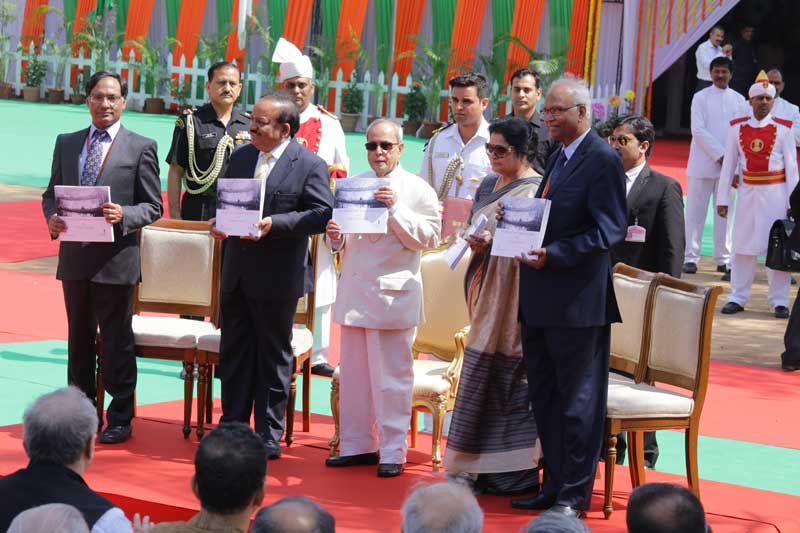
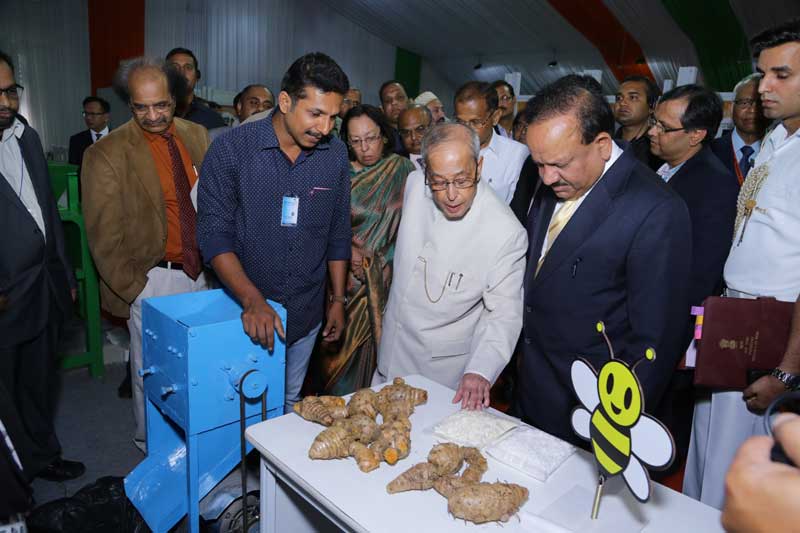
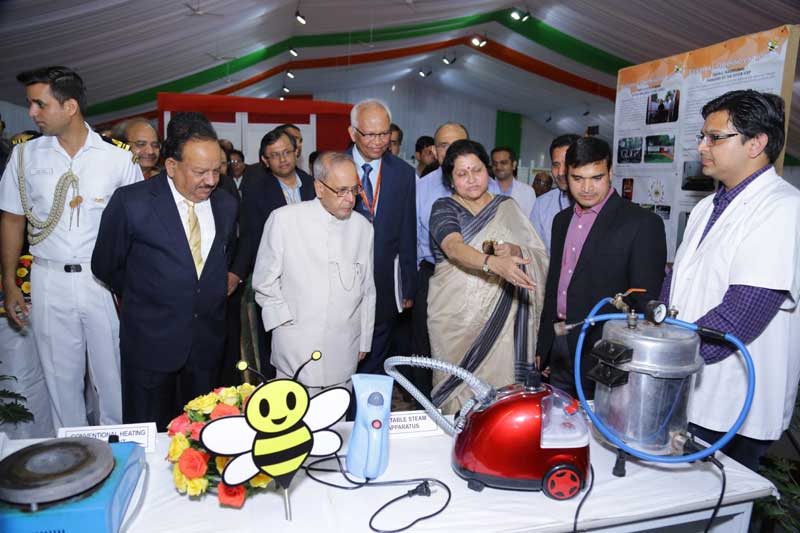
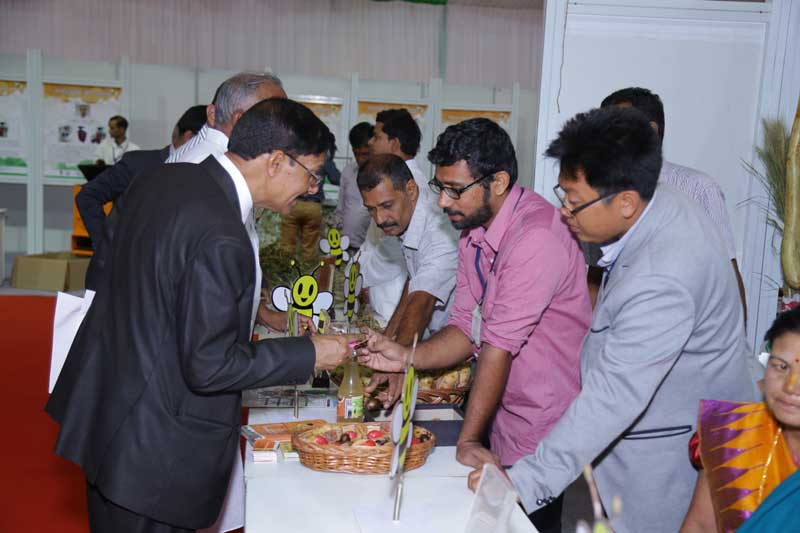
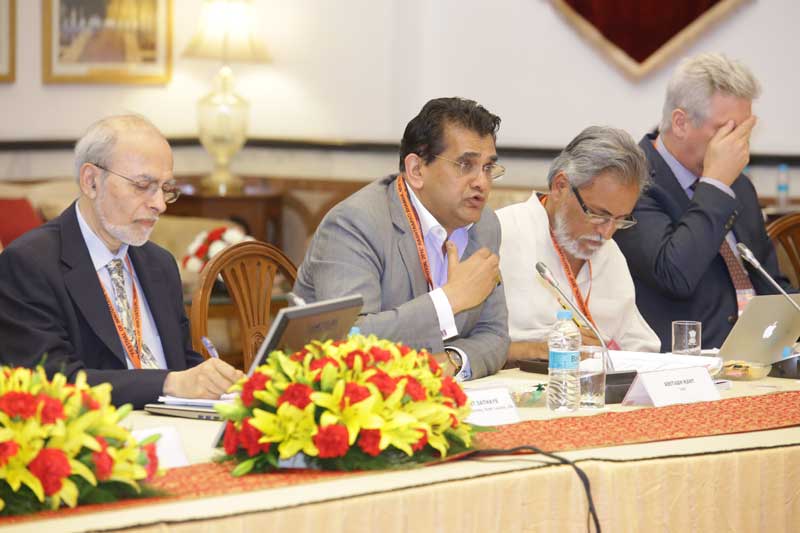
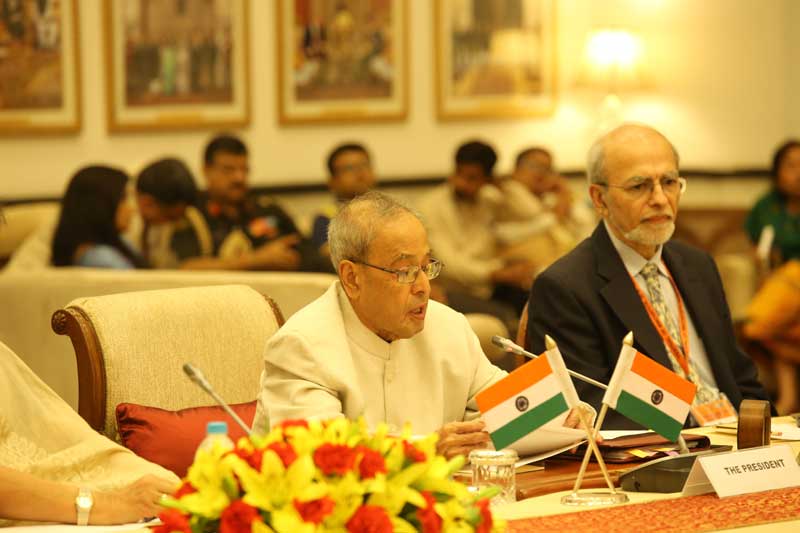
DAY 2
Gandhian Young Technological Innovation (GYTI) Award Ceremony
The Gandhian Young Technological Innovation (GYTI) Awards, organised by the Society for Research and Initiatives for Sustainable Technologies and Institutions (SRISTI) with support from Biotechnology Industry Research Assistance Council (BIRAC), were held on Sunday, March 13, 2016 during the Festival of Innovations (FOIN) at the Rashtrapati Bhavan.
The GYTI Award is an initiative to foster youth-driven innovations across India. These awards celebrate the spirit of Mahatma Gandhi and the spirit of student innovation in the fields of engineering, science and other applied technologies.
The panelists were Prof Ashutosh Sharma, secretary, Department of Science and Technology (DST); Prof K VijayRaghavan, secretary, Department of Biotechnology; Dr RenuSwarup, chairperson, BIRAC; Dr R A Mashelkar, chairperson, National Innovation Foundation (NIF); Prof Anil K Gupta, executive vice chairperson, NIF; Dr Vipin Kumar, director, NIF; Mr Ramesh Patel, secretary, SRISTI and Mr NirmalSahay, chief coordinator, SRISTI.
SRISTI had received more than 2,363 entries from 50 technology domains of 272 universities of 26 states. Of these, 43 teams were given awards and appreciation at GYTI 2016 awards ceremony. 15 students have been awarded with Rs 15 lakh each by the Department of Biotechnology while 100 students have been awarded Rs 1 lakh each for their ideas.
Global roundtables were held on Inclusive Innovation, Incubation & Acceleration Models for Innovative Start-ups; Innovation and Skill Development; Incentives for Innovation in Public Policy & Programmes; and Social Innovations for large scale change. The roundtable on social innovations for large-scale change was attended by Nobel Laureate Shri KailashSatyarthi.
A break-away session was organised wherein the roundtable participants were divided into four smaller groups to discuss on four key areas simultaneously. The areas were: (a) Incubation and Acceleration Models for Innovative Start-ups; (b) Innovation and Skill Development; (c) Incentives for Innovation in Public Policy & Programmes; and (d) Social Innovations for Large-Scale Change.
The participants were invited to witness a beautiful kathak performance by Ahmedabad-based danseuse Aditi Mangaldas and her troupe. The 45-minutes-long scintillating performance was followed by a dinner hosted by Smt Omita Paul.
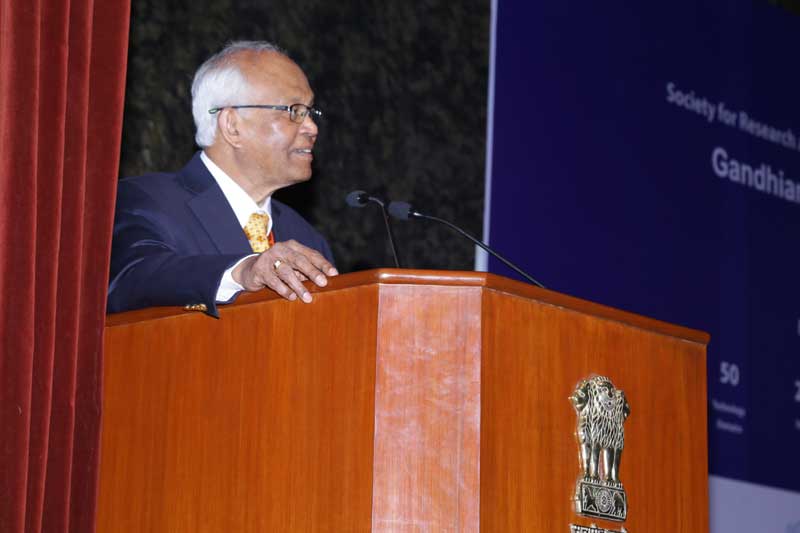

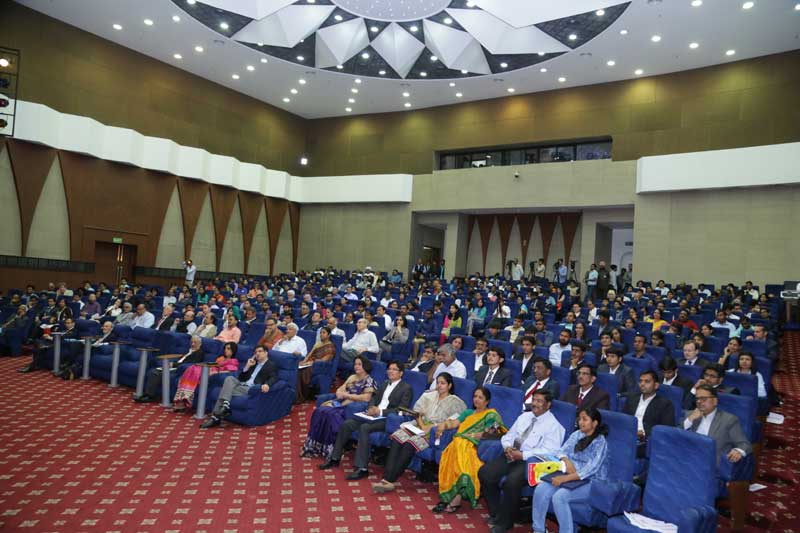
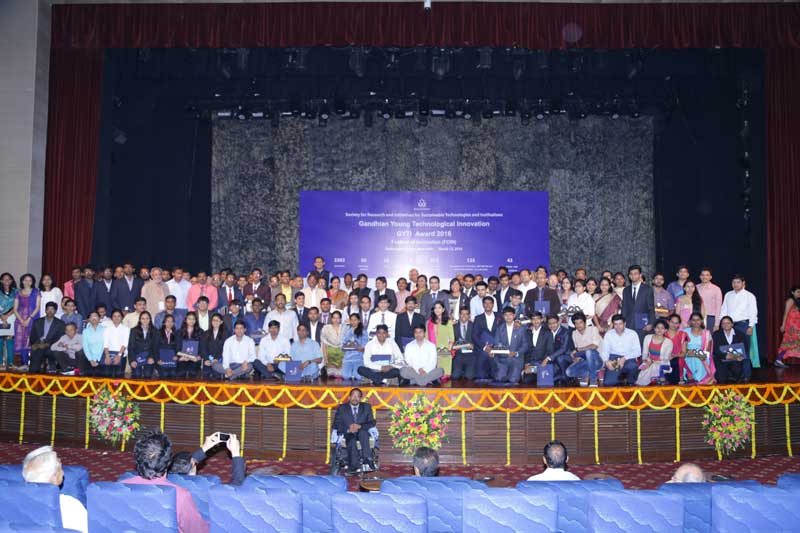
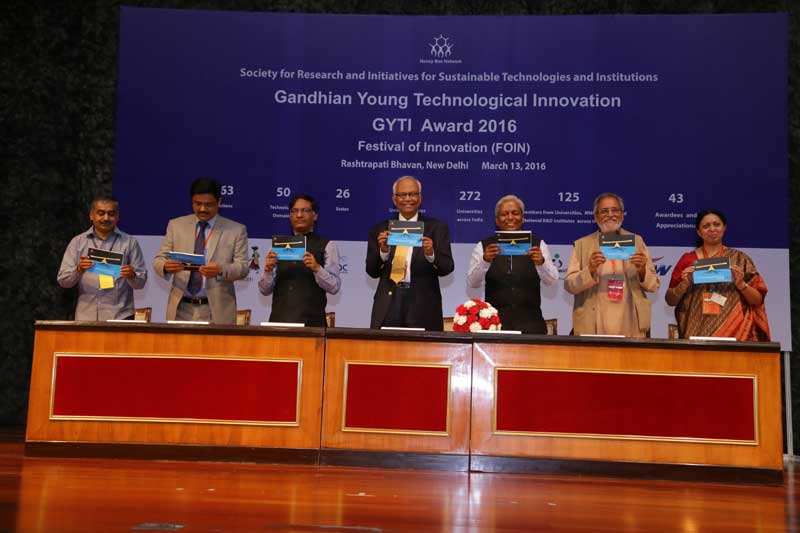

DAY 3
Global roundtables were held on Public Service Delivery – Macro-level initiatives for innovations; and Public Service Delivery – Grassroots Action for Inclusion.
Several public servants came from areas across the country and presented before the participants the innovations that they have brought in their service areas and how those innovations improved lives.
Workshop of innovative and creative children
Organised by Honey Bee Network
The children’s creativity workshop sought solutions to societal problems in slums around Delhi through creative ideas of privileged and underprivileged children. The workshop was held at the exhibition venue thus exposing the children to innovations by other children, technology students and people at the grassroots. The children were given an exposure to different solutions to real-life problems tried by innovators. They were encouraged to imbibe the empathetic values in developing innovative ideas to solve basic problems faced by people living in slums.
The overall objective of the programme was to develop an operational framework for empowering children to not only articulate their problems but also to find solutions, both individually and collectively.
The inverted model of innovation implies that children ideate/innovate; fabricators design and companies/agencies diffuse commercially or socially. Involvement of children in solving their challenges will help us understand micro and macro strategies, which can mobilise the creative potential of children around the world. This may help in overcoming persistent social inertia in developing countries. The children addressed the following: a) the challenges they faces; b) challenges that the society around them faces; and c) other problems that inhibit the unfolding of their potential.
The workshop aimed at tapping the dormant creative potential of underprivileged children who probably did not have the courage to articulate their ideas. The workshop was held over two days. The first day involved brainstorming, visiting the displays at the FOIN exhibition and meeting grassroots innovators followed by a briefing on field work and then visits to the slums. On the second day, the children worked in groups inside the exhibition tent, sketching the problems and presenting their ideas to solve them.
The children came up with multiple solutions to various problems.
Presentation Ceremony of Visitor's Awards, 2016
The Visitor's Awards, 2016 felicitated Tezpur University in the category of Best University; and the scientists from Jawaharlal Nehru University (JNU) in both research and innovation.
The President presented Visitor's Award for the Best University to Vice Chancellor of Tezpur University Prof Mihir Kanti Chaudhuri. Visitor's Awards for Innovation 2016 went to Prof Rakesh Bhatnagar of Jawaharlal Nehru University (JNU) for development of a genetically-engineered vaccine and a therapeutic antibody against anthrax while the Visitor's Award for Research 2016 went to molecular parasitology group of JNU for their pioneering work in the area of molecular parasitology, especially anti-malaria, leishmaniasis and amoebiasis.
The awards were presented in the presence of Union Minister for Human Resource Development Smt Smriti Zubin Irani, Vice Chancellors of various universities and other dignitaries.
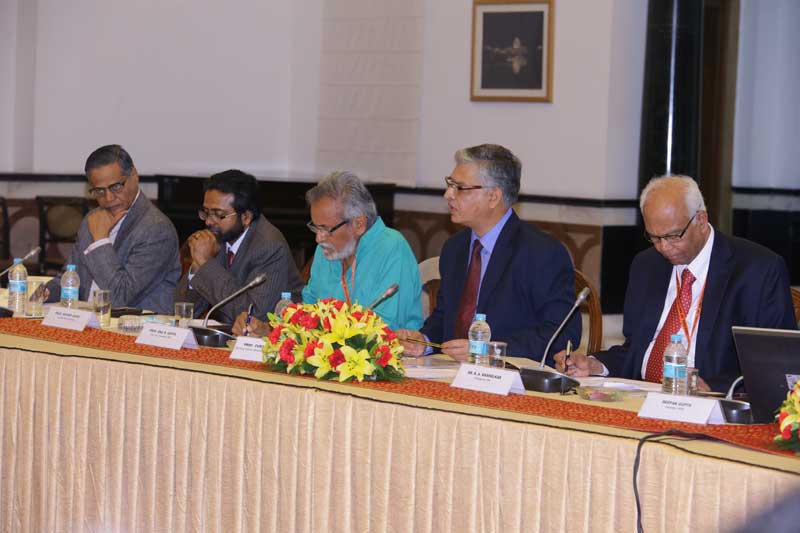


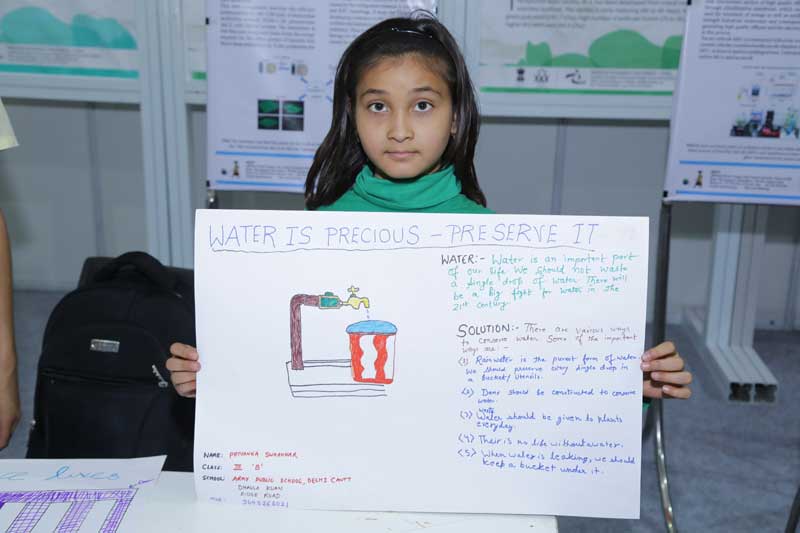
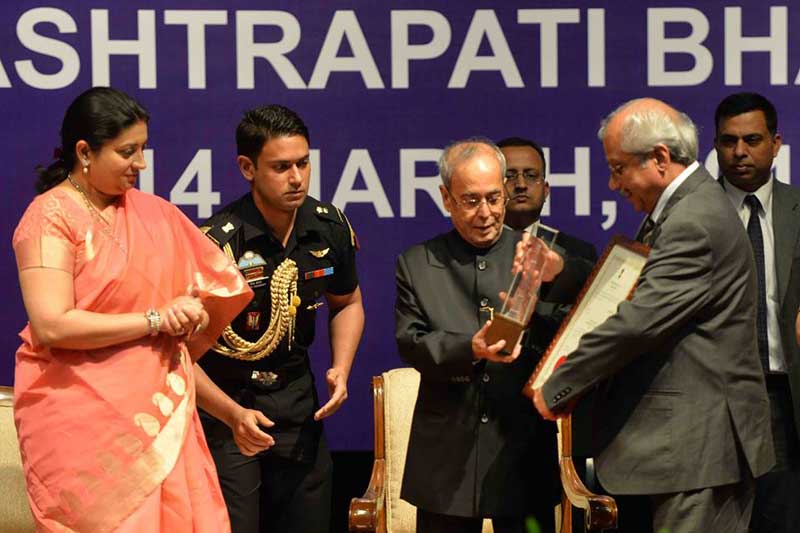
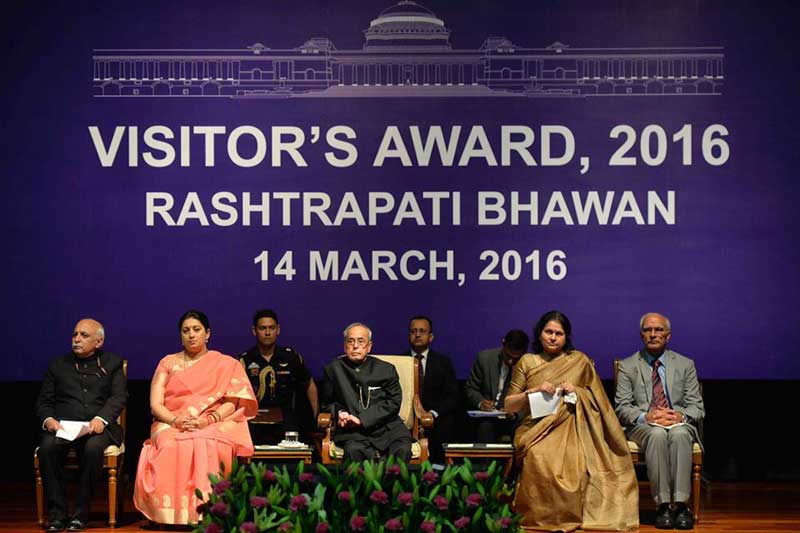
DAY 4
Meeting of National Innovation Clubs
During the first session, national innovation club representatives presented an overview of activities going on in their respective clubs and institutes. Also, there were presentations by technology entrepreneurs. During the course of the meeting, SmtOmita Paul, Secretary to the President of India, highlighted how innovation programmes like Skanska, Samagam and Sparsh are being run by the Rashtrapati Bhavan.
There was another session with academicians, technology business incubators, senior officers from India and abroad. This session was moderated by Shri H K Mittal, head, NSTEDB, and incorporated presentations on achievements by two technology entrepreneurs.
Abooklet on working of national innovation clubs was released by the Rashtrapati Bhavan. (Click here to view)
Posters were presented on outstanding achievements by National Innovation Clubs and outstanding Technology Business Incubators (TBIs) in the evening.
A glimpse into the presentation:
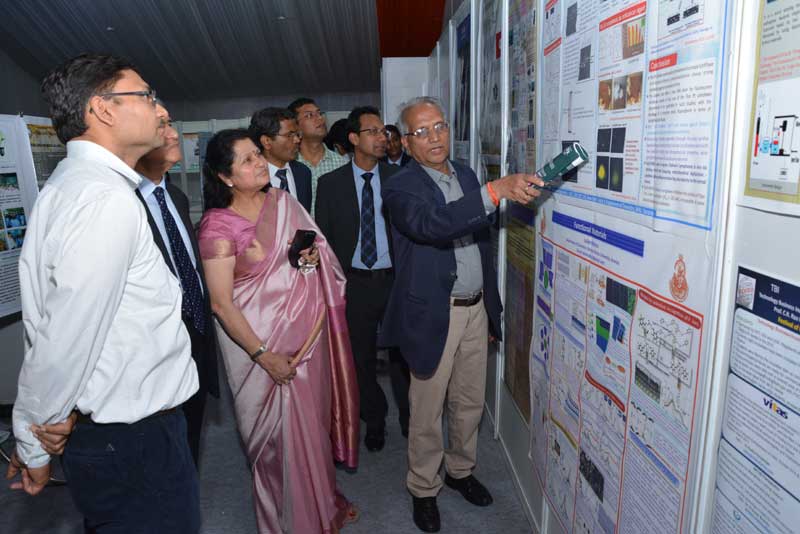
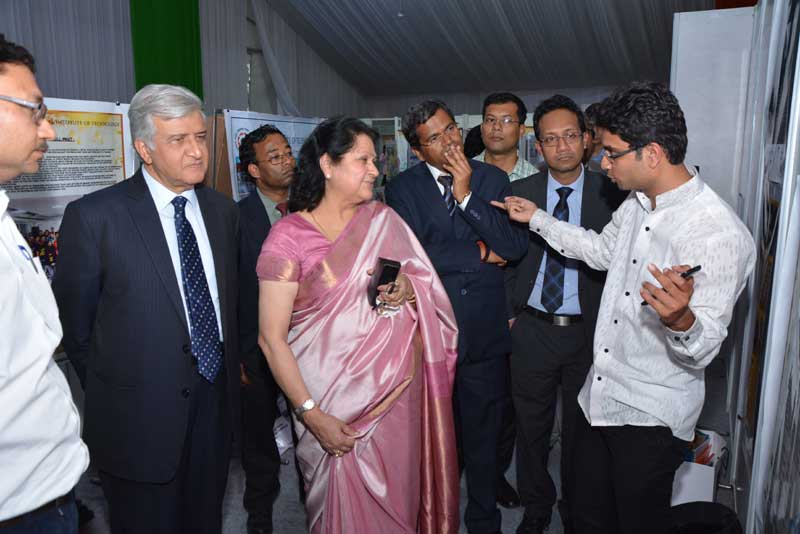
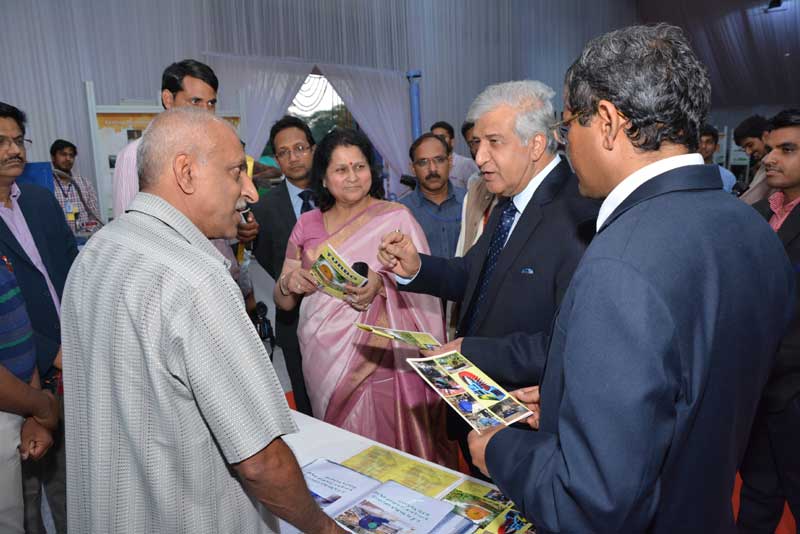
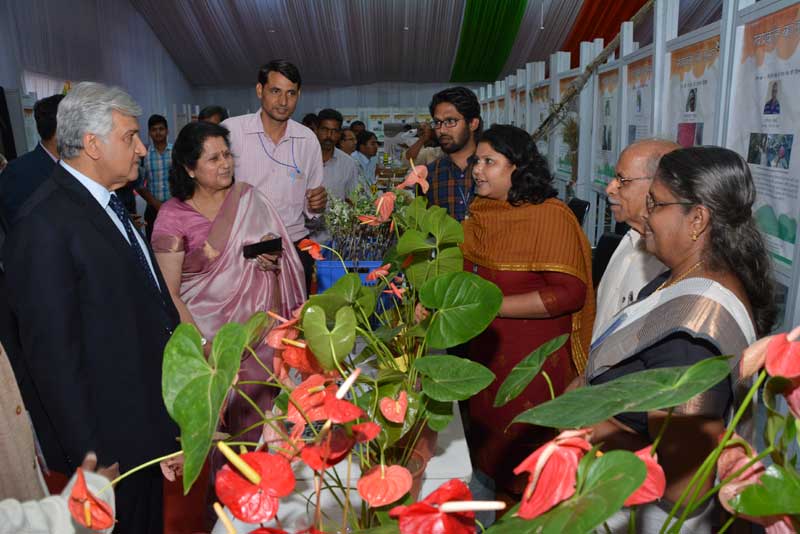
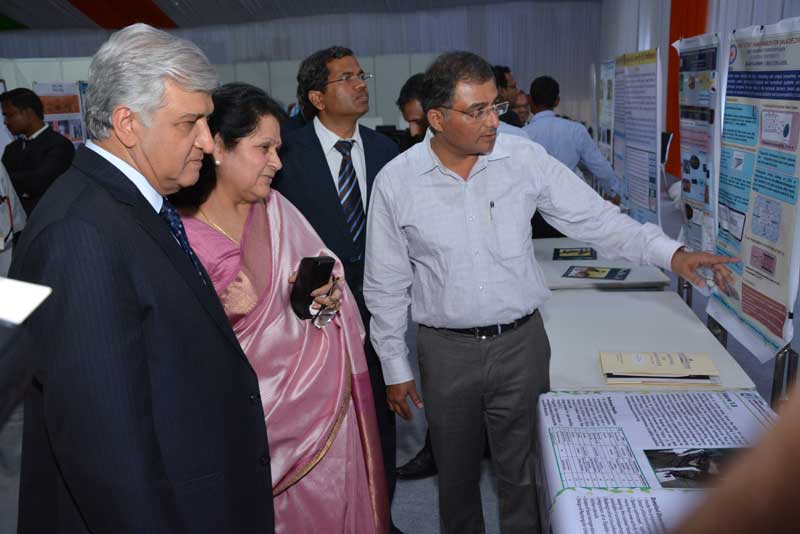
DAY 5
A roundtable on innovations in medical science and bio-technology was organised under the aegis of the ICMR. The idea was to celebrate outstanding innovations, with application at the grassroots level, in biomedical science and biotechnology. It was followed by interaction of scientists with grassroots innovators.
A glimpse into the roundtable:
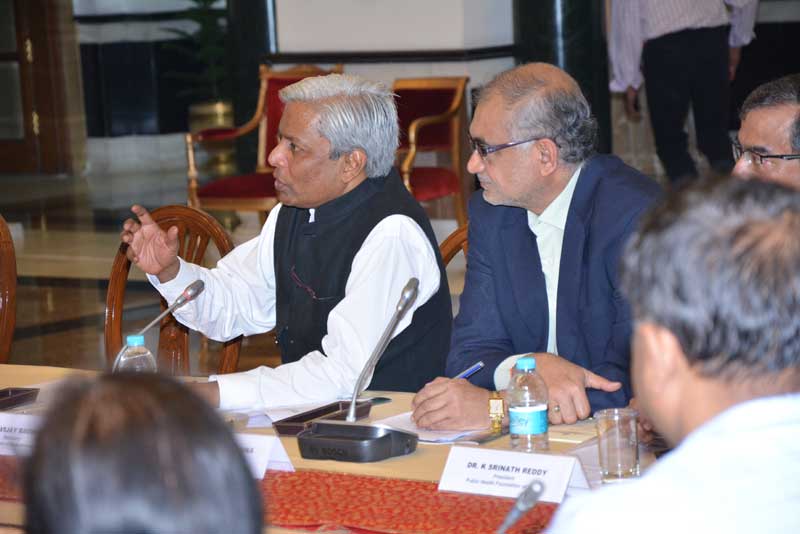
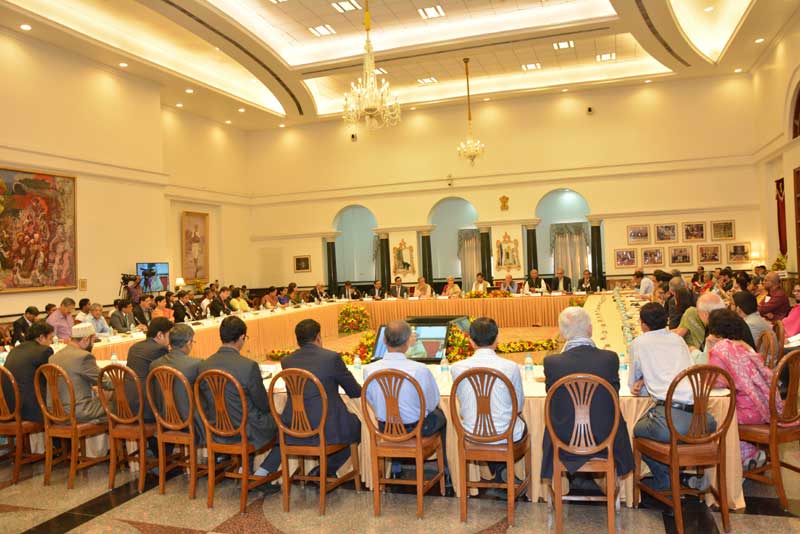
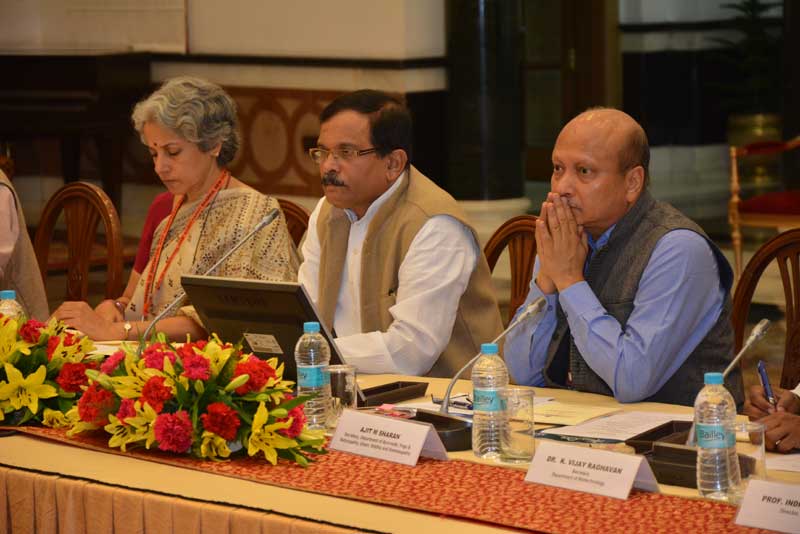
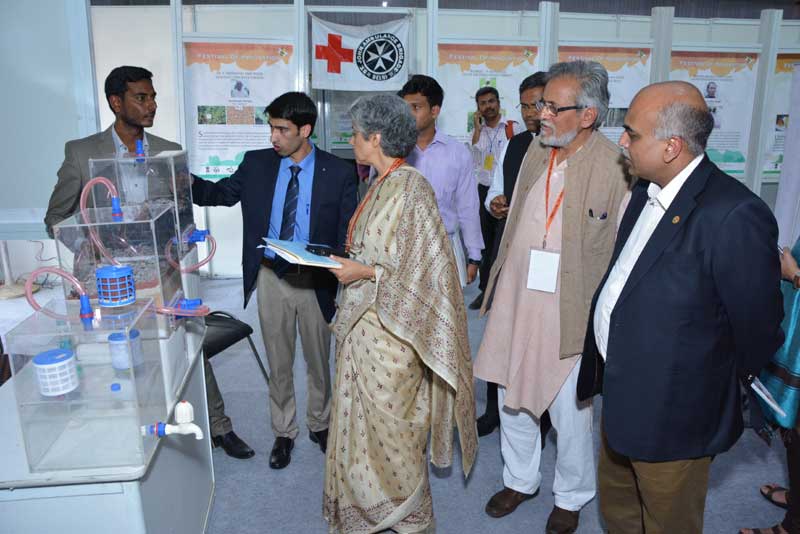
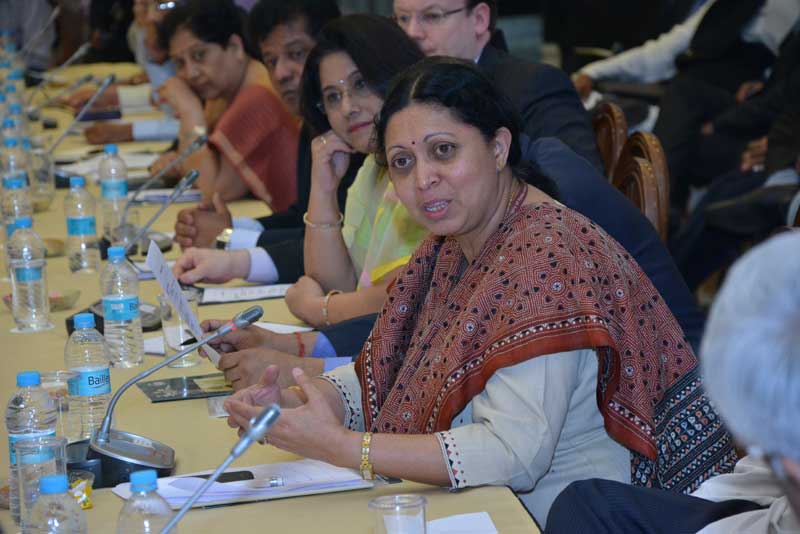
DAY 6
Interaction with the leaders of banking and financial sectors on the consultation and policy dialogue about financing innovations, followed by Presentation on key recommendations emanating from the Roundtable discussions to the Hon’ble President
The interaction was moderated by Dr KshatrapatiShivaji, CMD, SIDBI. It focused mainly on four areas:
- Grassroots innovations
- How incubation systems could be strengthened further
- Angel funding
- Financing from other than angel and early seed focused funding
At the end, a presentation on key recommendations emanating from the roundtable discussions was presented before the president.
The president, during the roundtable, launched an online platform, 'SIDBI-STARTUP-MITRA' that will act as a one-stop solution to meet the financing and other needs of early stage and start-up enterprises.


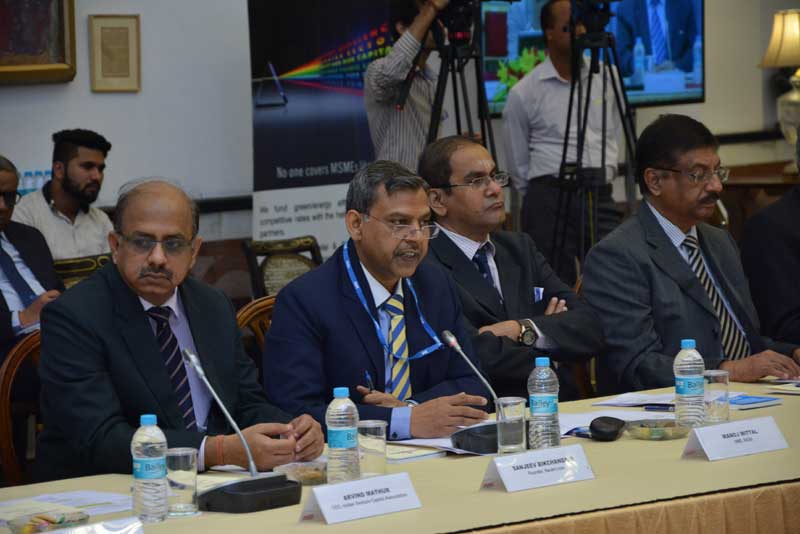
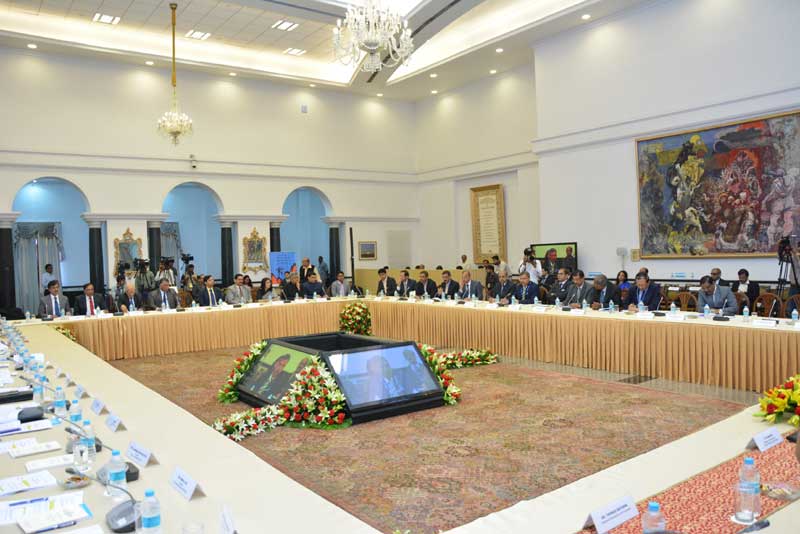
DAY 7
Exhibition of outstanding innovations related to Swachh Bharat and a workshop with farmer innovators and community workshop coordinators of NIF, facilitated by Prof Neil Gershenfeld, director, CBA, MIT, USA
Workshop on Enhancing Excellence in Fabrication at Grassroots Level
NIF has established community workshops in different rural areas of the country at the premises of seasoned innovators so that other grassroots innovators of the region can have access to fabrication facilities and also learn from the experiences of such innovators. 37 such workshops have been established in 19 states across the country . Many a times some ideas which need trial and error cannot be developed due to lack of dimensional drawings that are required for communication with the fabricators. Also, the innovators do not get it fabricated due to fear of copying by others; the community workshop would facilitate conversion of ideas into reality. The type of facilities provided to innovators vary according to their skills, experience and availability of facilities then than what he/she already has.
Prof Neil Gershenfeld, director, Center for Bits and Atoms, MIT, Prof Anil K Gupta (EVC –NIF), Prof Gajendra Singh (former DDG-Engg, ICAR), Prof Amit Seth (IIT Gandhinagar), ITI instructors, principals from nearby ITIs, people from Fab Labs and grassroots innovators attended the workshop.
Prof Gershenfeld explained the need for digital fabrication and shared his experiences about Fab Labs across the world, citing some interesting examples.
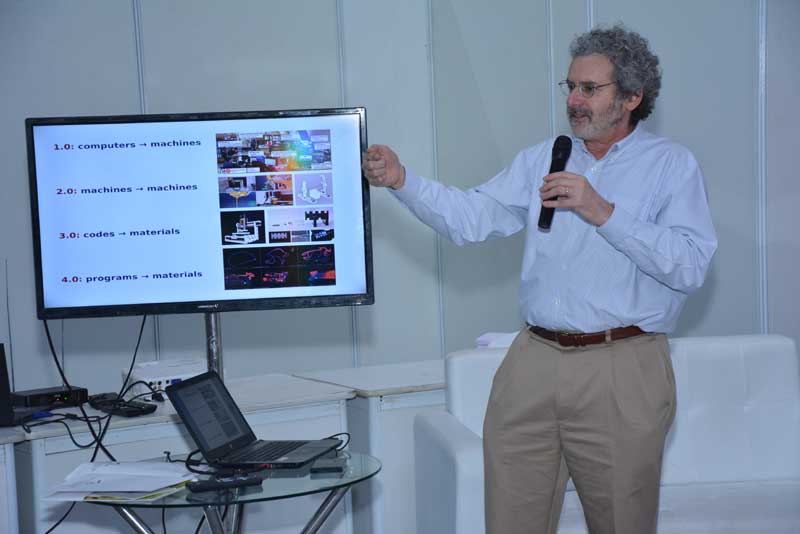

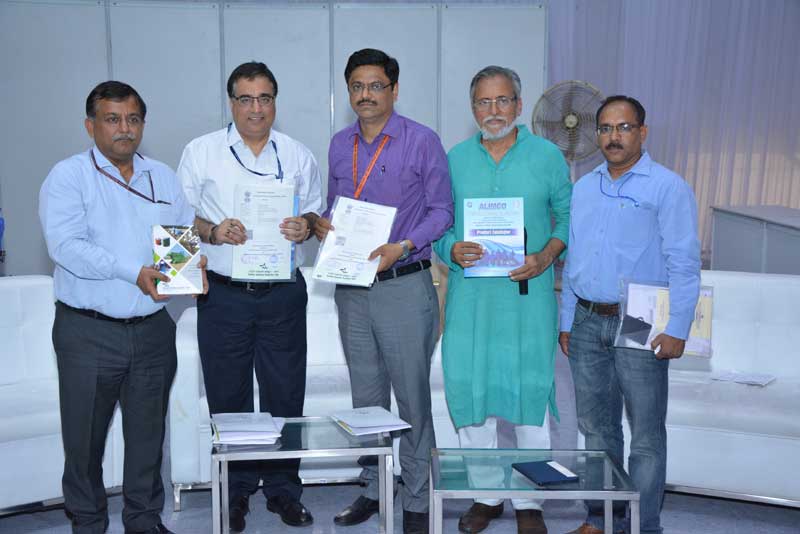
DAY 8
Last day of innovation exhibition; Hackathon for social innovation
The week-long Festival of Innovation 2016 in Rashtrapati Bhavan concluded on March 19 with a 12-hour coding competition to develop web and mobile applications in hackathon style (non-stop rapid development). The topics on which applications were developed were a) teachers taking attendance after every class, 2) examination authentication for students, 3) monitoring entry into public monuments, and 4) monitoring of public toilets.
The President felicitated the winners of the completion in each category in presence of Shri Mohandas Pai and Shri Karl Mehta of Code for India and other dignitaries.
The innovation exhibition continued till March 19 evening. With Hackathon, FOIN 2016 came to an end.

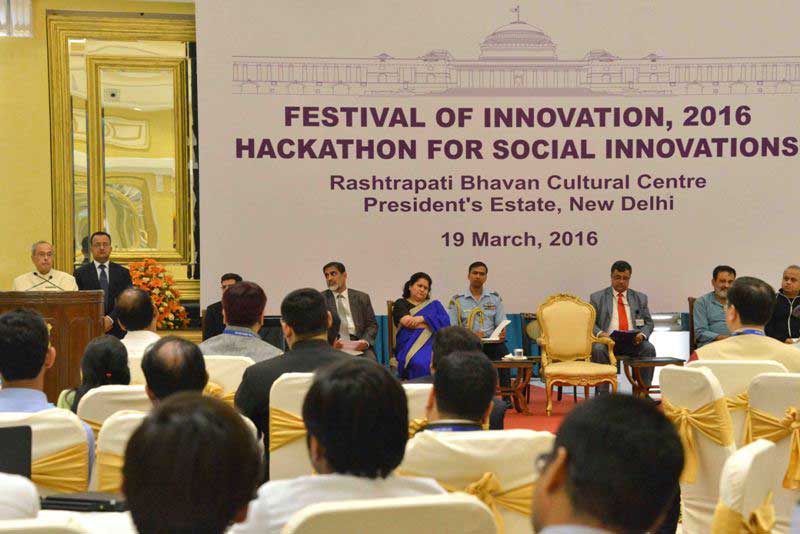
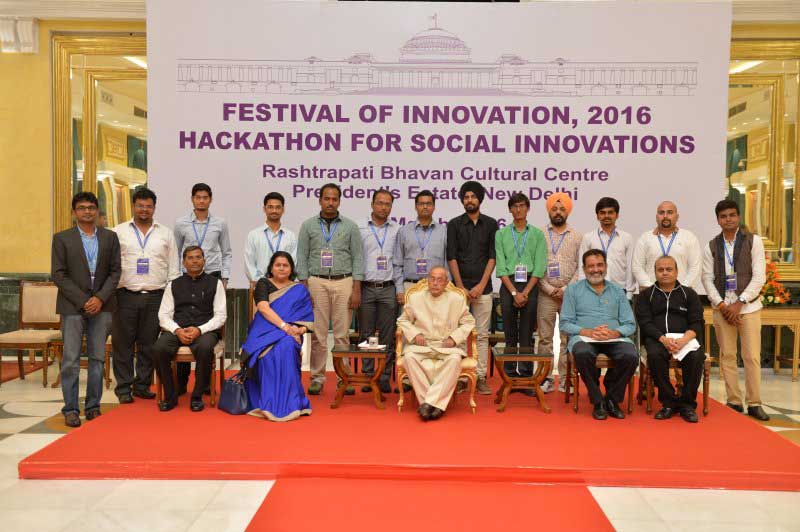




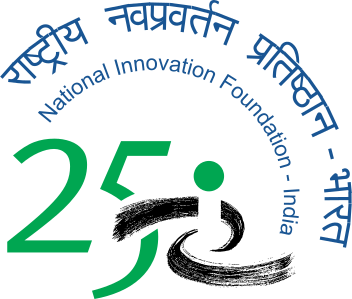



 GYTI 2016 Awardees
GYTI 2016 Awardees